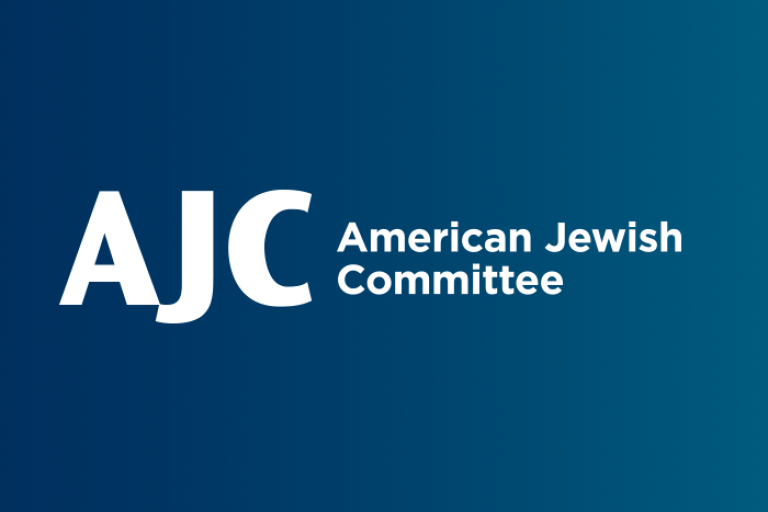February 12, 2021
As the last Holocaust survivors and eyewitnesses leave this world, a looming threat has begun to play out in Poland that threatens the freedom to research World War II and its enduring lessons for future generations.
A Polish judge has ordered two Holocaust historians to apologize for a lack of accuracy in using survivor and witness testimonies alleging that a former Polish mayor was complicit in the murder of several dozen Jews more than seven decades ago.
AJC’s Reaction
In a statement, American Jewish Committee (AJC) Central Europe Acting Director Dr. Sebastian Rejak, Polish Chief Rabbi Michael Joseph Schudrich, and the Union of Jewish Religious Communities in Poland denounced the ruling for setting a dangerous precedent and “replacing historical discourse with a judicial procedure initiated or supported by organizations funded with public money.”
“We are of the opinion that uncovering historical truth is a difficult and often painful process,” the statement said, “but it should be carried out in a way that is free from the threat of censorship, penal sanctions, or a civil lawsuit in lieu of charges brought by a prosecutor.”
The statement underscored that “historians must not be put in a situation in which they would fear their right to exercise the freedom of research may be compromised. Any threats of possible judicial reprisals have to be ruled out.”
“I understand that the court made it clear it wanted the ruling not to trigger the so-called ‘chilling effect’, that is, not to discourage other researchers from analyzing all aspects of the Holocaust and publishing research results,” Rejak said. “Well, we will live to see whether the verdict will have a negative effect on scholars, especially young ones, or not.”
Oświadczenie Związku Gmin Wyznaniowych Żydowskich, Naczelnego Rabina M. Schudricha i naszego p.o. dyr. @SebastianRejak ws. wyroku w postępowaniu przeciwko B. Engelking i J. Grabowski.
— AJC Central Europe (@AJC_CE) February 10, 2021
"Historycy nie mogą obawiać się ew. represji na drodze sądowej". pic.twitter.com/dQlDGt0KQD
The Issue At Hand
The account of the former mayor’s role was one paragraph in two volumes of “Night Without End,” a 1,700-page report by scholars Barbara Engelking and Jan Grabowski that examines the role Polish individuals played in the murder of Jews while under German Nazi occupation between 1939 and 1945. During that time, around three million Jews were murdered on Polish soil, most of them in death camps such as Auschwitz or Belzec, in forced labor camps, in ghettos, or in mass shootings by the SS’s so-called mobile killing units. But thousands died at the hands of their neighbors.
The libel case comes at a challenging time for the Jewish community in Poland, where state-sanctioned antisemitism has emerged in the form of historical revisionism. Poland and the Baltic states have recoiled at suggestions that citizens participated in perpetrating the Holocaust, preferring to commemorate their countries’ victories over Soviet and Nazi totalitarian regimes and to underscore that they were World War II victims as well.
A Polish politician who questioned the wisdom of financing state museums at Auschwitz and Majdanek “out of altruism towards others” was named the country’s education and science minister. Just a few weeks ago, he picked as his deputy a lawmaker with a track record of antisemitic statements and who is a former member of far-right organizations.
A Controversial Law
The case against the historians was yet another chapter in the story about stifling the discussion about Poles’ participation in Holocaust crimes. The government's policy to "defend the good name of Poland" was amplified in 2018 when the Parliament adopted a law that held liable anyone who suggested the Polish state or nation bore responsibility for the Holocaust. The initial law made it a crime, punishable by up to three years in prison. After international outcry, the government amended the law to remove the criminal penalties.
The lawsuit filed by the niece of the former mayor charged Engelking and Grabowski with violating the niece’s right to remembrance of the dead and the right to national identity and pride. The niece also sought punitive damages. The judge dismissed the claim about national identity and pride and did not award financial compensation.
Rejak added that the judge only ordered the scholars to apologize for the problematic paragraph.
“The ruling does not pass judgement on the value of the whole book,” he said. “It does not mean the whole book is a hoax.”
Jewish-Polish Relations
In a recent column published in Gazeta Wyborcza, considered “The New York Times of Poland,” AJC CEO David Harris wrote that despite the troubling developments, Poland and the Jewish people should recognize their shared and common histories and work together to preserve historical memory.
He acknowledged that Russia’s revisionist history has tried to erase the pact between Hitler and Stalin that divided Poland between them and to wrongfully blame Poland for the outbreak of World War II. He also said too many people continue to refer inaccurately to Auschwitz and other concentration camps on Polish soil as “Polish death camps,” rather than “German death camps.”
“Meanwhile, the Holocaust, in which three million Polish Jews (and three million other Jews) perished at the hands of Nazi Germany and its collaborators, is a permanent target of denial, rationalization, trivialization, distortion, and instrumentalization,” Harris wrote.
He pointed out that Polish history is also rich with stories of remarkable heroism during the Holocaust. Of more than 27,700 people classified by Yad Vashem as Righteous Among the Nations — non-Jews who risked their lives to save Jews from the Nazis and their collaborators — more than 7,000 are Polish, more than from any other country.
“Together, let’s speak out against historical revisionism, appeasement, wooly-eyed thinking, antisemitism, anti-Catholicism, and the rebirth of illusions about either Nazism or socialism,” Harris wrote. “It’s high time, in other words, to move forward as co-authors of history. We have no more time to lose.”

